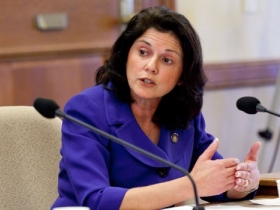Few Competitive Legislative Races
Redistricting has reduced the number of competitive districts for fall elections.
All 99 state Assembly seats will be up for election on Nov. 4. But voters in more than 50 districts won’t have much of a choice, since there will be no opponent to the incumbent or the winner of the August primary, other than (in some cases) a third-party candidate.
The winners of at least 34 of those Assembly seats were decided last week, for example, before any voter marked a ballot, once the deadline to register passed and 34 incumbents were left with no opponents.
As for the other seats, although the line-up could still change next week, when the Government Accountability Board (GAB) certifies all candidates for the Aug. 12 primary and the Nov. 4 general elections, preliminary totals show:
-More than 20 incumbent Assembly Republicans, and 14 incumbent Democrats, will not be challenged on Nov. 4. Several Milwaukee- and Madison-area Democrats will not face GOP opponents; many suburban Republicans will be unopposed.
-Five other Assembly incumbents will not have major-party opponents Nov. 4. Instead, they will face little-known independent, Libertarian, Green or other third-party challengers.
-If no third-party candidate wins on Nov. 4, Aug. 12 primaries will decide 12 other Assembly races.
There is more competition for 14 of the 17 state Senate seats that will be voted on Nov. 4. But two Senate Democrats – Jon Erpenbach, of Waunakee, and Tim Carpenter, of Milwaukee – will go unchallenged for new four-year terms. And a Senate Republican, Leah Vukmir, of Wauwatosa, faces only a Libertarian Party opponent.
But Jay Heck, executive director of Common Cause of Wisconsin, says only a few of the potential Republican-versus-Democrat Assembly elections on Nov. 4 will be competitive: “As a result of the 2011 redistricting, there were only 14 of 99 Assembly seats that were ‘competitive’,” Heck notes. He defines “competitive” as an election decided by 10 points – 55 percent to 45 percent, for example – or less.
Using 2010 Census data, Republicans redrew U.S. House and legislative districts. Although the new maps were challenged in court, federal judges only tweaked two Assembly district boundaries in Milwaukee. “The way the districts are configured means that one of the two (major) party candidates will really not be competitive,” Heck adds. “The outcome has already been predetermined because of ‘gerrymandering’.”
Heck, and even some Democrats, predict that 99-member Assembly will stay in Republican control for the 2015-16 session. “Those seats that are currently Republican will likely remain so for the most part and those that are Democratic will as well,” Heck explains.“There will be a few changes, because some of those 14 competitive seats from 2012 will be competitive again. But not many more than that because the map is rigged.”
Carolyn Castore, of the Milwaukee County League of Women Voters, said the number of safe legislative seats “appears to be” at an all time high. “The effort and money needed to run even a bare bones race may not be worth it, if a potential candidate knows they will likely lose by a large margin,” she says. “Due to the power of incumbency, open seats present far more attractive targets.”
Other observations from the GAB’s list of candidates who filed nomination papers for the Nov. 4 election:
*Biggest surprise: Former Capitol power broker and convicted felon State Sen. Gary R. George reappeared, filing papers to challenge fellow Milwaukee Democrat and 4th District Congressman Gwen Moore in the August primary. George and Moore served together in the Senate. George co-chaired the Legislature’s budget committee for years, often dictating what was passed. He was recalled by Milwaukee voters in 2003, and then convicted by federal prosecutors in a kickback scheme. Party leaders say George kept his decision to run a secret.
*Biggest grudge – or cage – rematch: In Assembly District 93, former Democratic Rep. Jeff Smith, of Eau Claire, is challenging the Republican, Rep. Warren Petryk, of Eleva, who beat him by 498 votes two years ago.
*First-termers unchallenged: 15 first-term Assembly members won’t have opponents this year. That suggests that an old political axiom – first-term candidates are the most vulnerable – is no longer true. Not this year, at least.
Steven Walters is a senior producer for the non-profit WisconsinEye public affairs channel. Contact him at stevenscwalters@gmail.com
The State of Politics
-
A Wisconsin Political Trivia Quiz
 Dec 15th, 2025 by Steven Walters
Dec 15th, 2025 by Steven Walters
-
The Fight Over Wisconsin’s House Districts
 Dec 8th, 2025 by Steven Walters
Dec 8th, 2025 by Steven Walters
-
The Battle Over On-Line Betting
 Nov 24th, 2025 by Steven Walters
Nov 24th, 2025 by Steven Walters






















